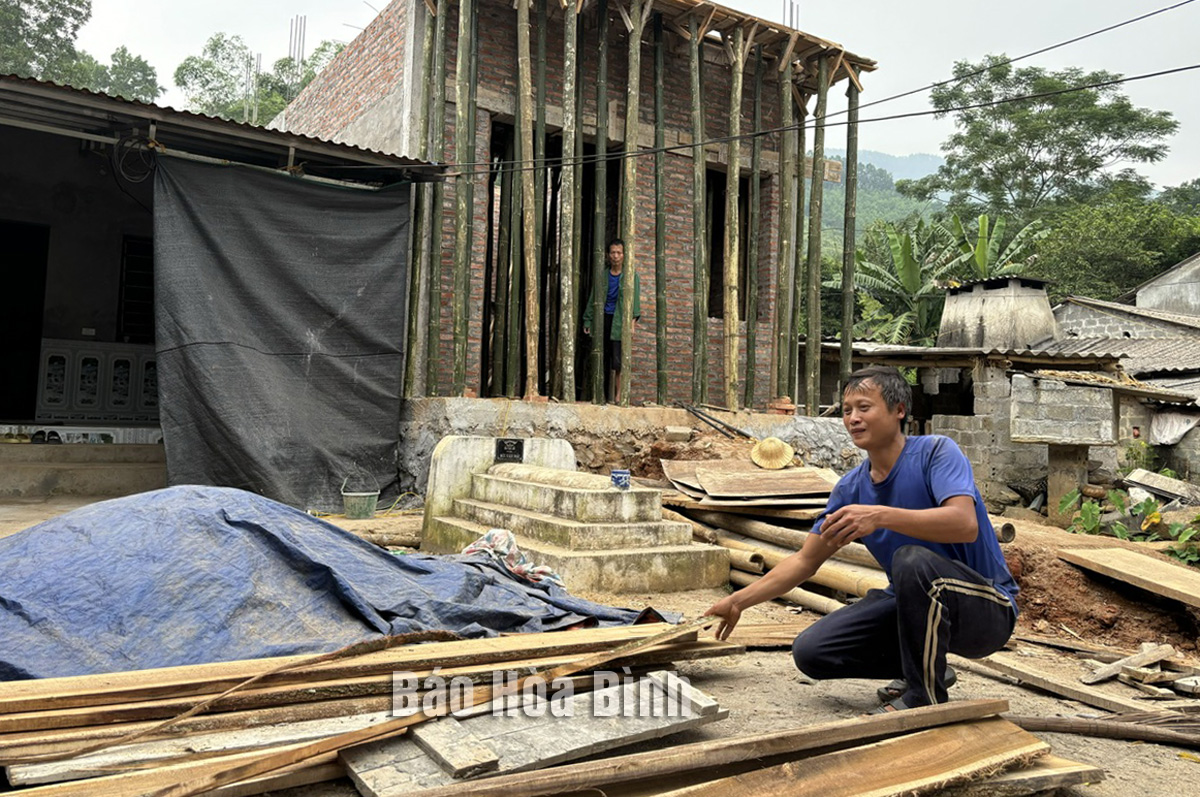
The Hoa Binh provincial People’s Committee has directed departments, sectors and localities to effectively carry out land policies and projects under the national target programme for socio-economic development in the mountainous and ethnic minority-inhabited areas so as to handle the shortages of housing, and residential and cultivation land in the province.
Bui Van Chien, a local resident in Bai hamlet in Kim Boi district’s Kim Lap commune receives financial support of 40 million VND (over 1,500 USD) to build his new house.
For the 2019-2020 period, more than 4 billion VND (over 158,500 USD) was allocated for the construction of water supply facilities and over 109 billion VND for the improvement of agricultural land and job changes, benefiting more than 18,000 local people.
Since 2021, the province has provided water supply and tanks for nearly 15,000 families and invested in 37 public water supply facilities. Particularly, the local administration launched a 450-day campaign to eradicate temporary and dilapidated houses for households with difficulties across the province.
According to Do Duy Sam, an official of the provincial Board of Ethnic Affairs, under the national target programme on sustainable poverty alleviation for the 2021-2025 period, the province outlined a plan to provide housing support worth over 77 billion VND for 2,157 families. To date, it completed the construction of houses for 1,122 families and repair of homes for 707 others.
Meanwhile, Hoa Binh also developed a plan to assist 3,807 families by mobilising resources from the national target programme for socio-economic development in the mountainous and ethnic minority-inhabited areas for 2020-2025.
Given more than 3,900 households in need of housing support, the Board of Ethnic Affairs will enhance inspection and supervision over the selection of beneficiaries and address difficulties and urgent needs of the poor and ethnic minority people in a timely manner.
On May 15, the Hoa Binh Steering Committee for Science, Technology, Innovation, and Digital Transformation launched the "Digital Literacy for All” movement. The event was held both in-person and virtually, connecting provincial authorities with district-level Party committees and local communities across communes, wards, and townships.
The People’s Committee of Hoa Binh province on May 16 held a conference to honour outstanding intellectuals for their contributions in 2025.
The Standing Board of the Hoa Binh provincial Party Committee has held a conference to announce the provincial Party Committee’s decision about the merger of Hoa Binh Newspaper and the provincial Radio and Television Station, along with the Standing Board’s appointment decisions.
After the historic victory on April 30, 1975, which liberated the South and reunified the country, the whole Vietnam embarked on a new mission — promoting peace and reconstructing the nation with century-defining projects. On the fierce Da River, over 30,000 engineers, sappers, and construction workers battled against rocky mountains and raging floods to achieve a remarkable feat. The Hoa Binh Hydropower Plant, the largest of its kind in Southeast Asia at that time, officially began generating electricity, lighting up the North and ushering in a new era of industrialisation.
Muong Dong in Kim Boi district, one of the four major Muong regions in Hoa Binh province, is harnessing its revolutionary legacy and cultural heritage to drive socio-economic transformation.
Throughout April, the joyful atmosphere of the 50th anniversary of the Liberation of the South and National Reunification spread nationwide. Together with the whole country, residents in Hoa Binh city also expressed their patriotism through meaningful and practical actions.



